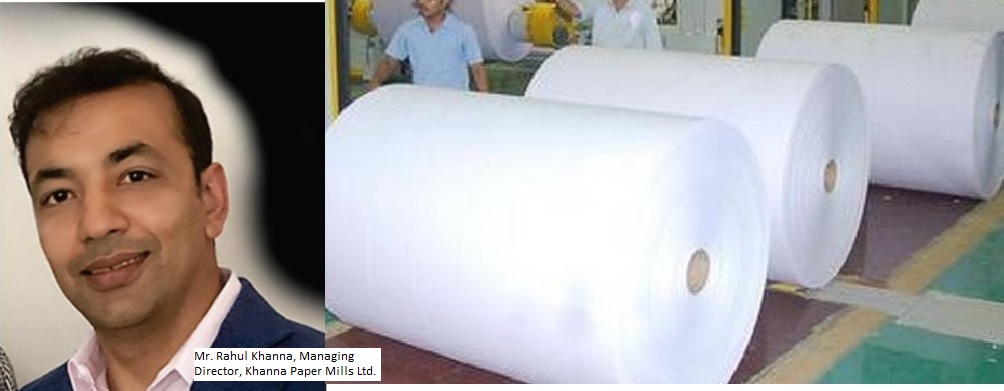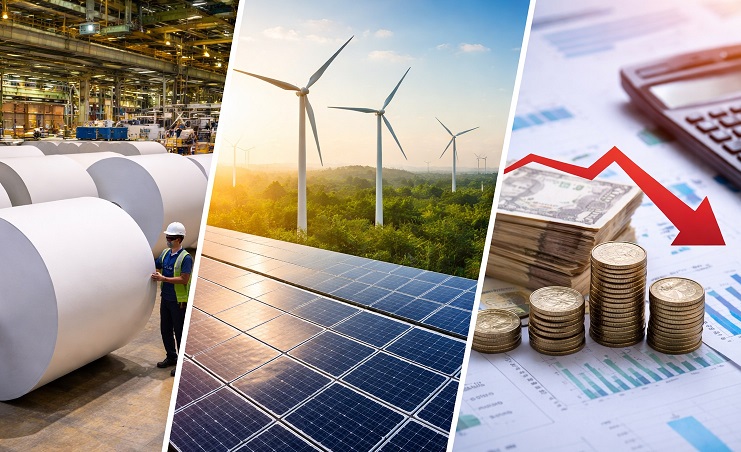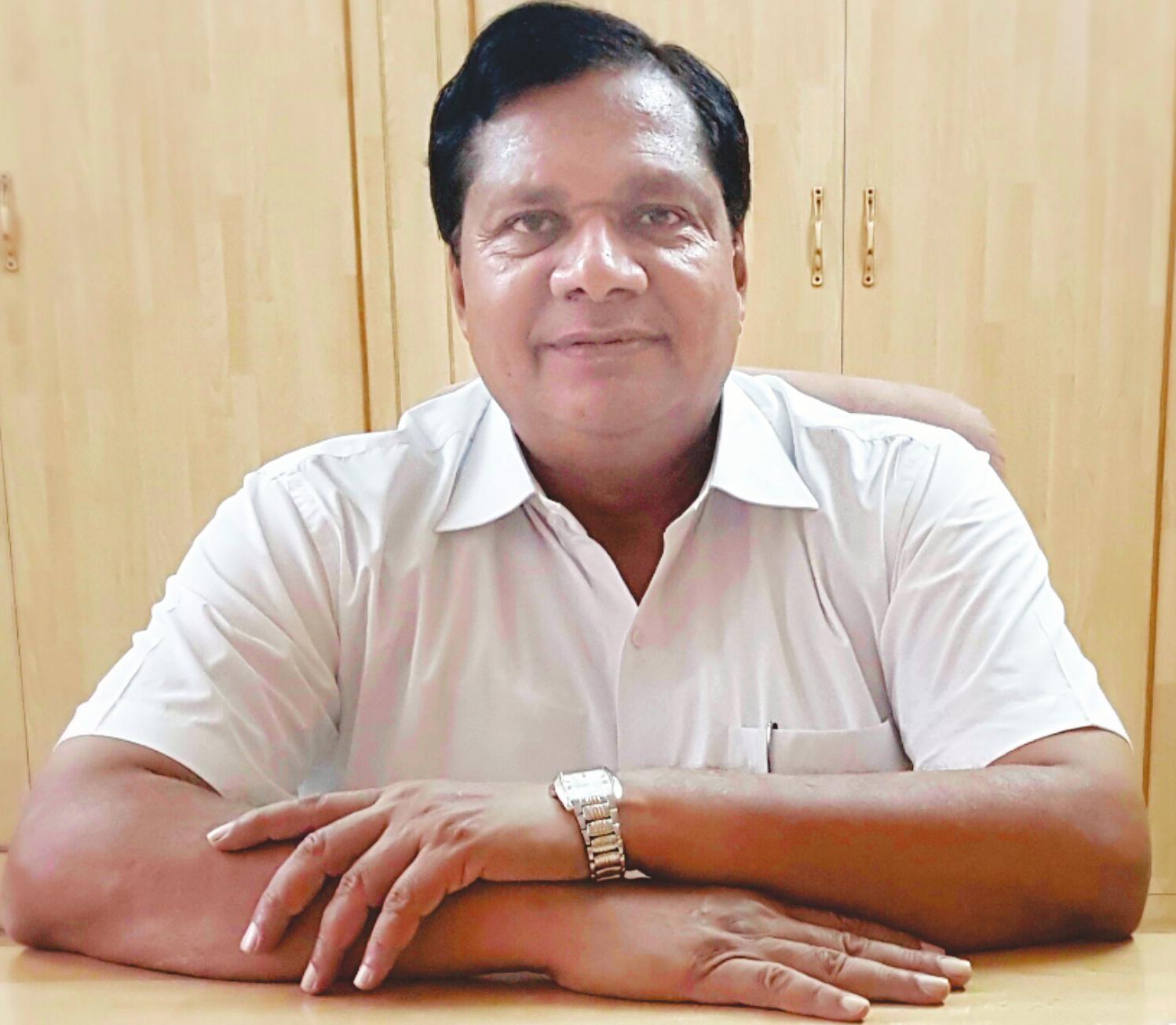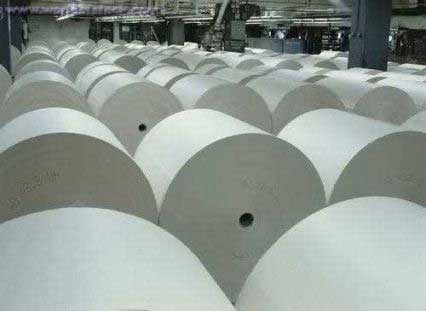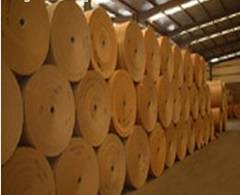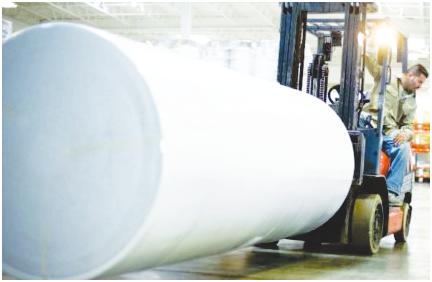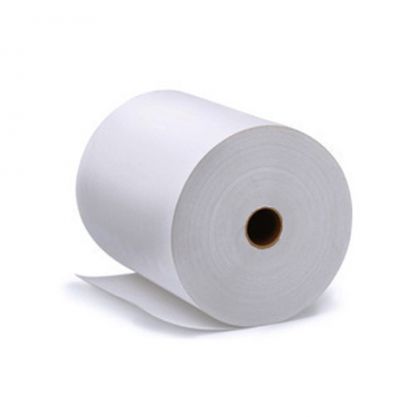With Iraq’s high paper imports and low output, IGG’s Baghdad investment targets the rising paper demand across the MENA region, says Mr. Ali Mozan, CEO of IGG
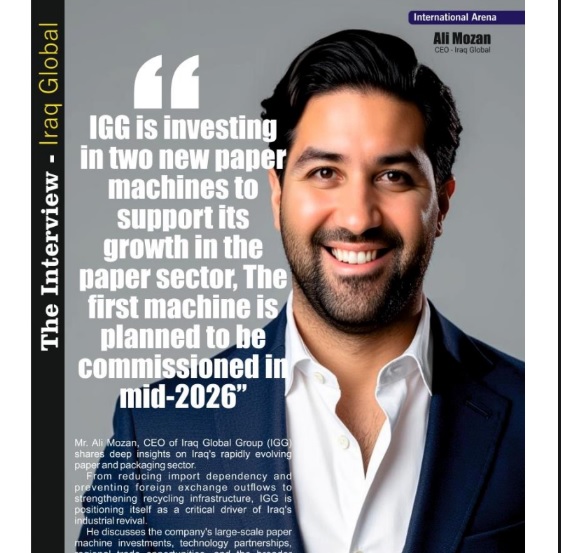
With Iraq’s high paper imports and low output, IGG’s Baghdad investment targets the rising paper demand across the MENA region, says Mr. Ali Mozan, CEO of IGG
-IGG is investing in two new paper machines to support its growth in the paper sector, The first machine is planned to be commissioned in mid-2026
-There is no paper factory in Iraq that produces continuous and high-quality production with high technology. A paper machine that will be installed in accordance with world standards will be able to dominate the market
Mr. Ali Mozan, CEO of Iraq Global Group (IGG) shares deep insights on Iraq’s rapidly evolving paper and packaging sector. From reducing import dependency and preventing foreign exchange outflows to strengthening recycling infrastructure, IGG is positioning itself as a critical driver of Iraq’s industrial revival.
He discusses the company’s large-scale paper machine investments, technology partnerships, regional trade opportunities, and the broader strategic role of Iraq in the MENA market, where demand continues to expand alongside e-commerce and consumer growth.
The Pulp and Paper Times
Q: Please provide a brief introduction to Iraq Global Group (IGG).
Iraq Global Group (IGG) is a rapidly growing, regionally based integrated industrial organization based in Iraq. IGG operates in various sectors including energy, construction, trade, and waste paper production and is known for its strategic investments that contribute to the country’s reconstruction process. The Group plays a critical role in the Iraqi economy with its high-quality standards and sustainability-oriented production approach.
Q: How would you evaluate Iraq’s paper market from the demand side? How are paper and packaging products gaining space among Iraqi consumers? After years of political instability and conflict, how has Iraq’s economy been emerging in recent years?
Despite years of political instability and infrastructural deficiencies in Iraq, the demand for paper and packaging products has increased significantly in recent years due to increased public and private sector investment. Modernizing consumer habits, the growth of e-commerce, and the proliferation of packaged products are stimulating domestic demand, especially for categories such as corrugated cardboard, kraft paper, and toilet paper. The Iraqi economy has entered a stable growth trend with restructuring, effective use of oil revenues, and the development of regional trade.
IGG made this investment to reduce Iraq’s dependence on paper imports, improve recycling infrastructure, and increase local employment. Iraq imports hundreds of millions of dollars’ worth of paper and packaging products annually.
Iraq Global project is predominantly a recycling industry and uses waste paper as the major raw material for the production of its products.
Paper production costs in Iraq are lower than in other countries. There are advantages such as energy, labor, and raw materials, etc.
There is no paper factory in Iraq that produces continuous and high-quality production with high technology. A paper machine that will be installed in accordance with world standards will be able to dominate the market.
The country's foreign exchange resources will be prevented from going abroad. Iraq has local and geographical advantages for the MENA paper market.
The paper and packaging industry is of strategic importance in the MENA region, both due to the growing consumer market and the impact of e-commerce. Iraq is one of the prominent markets in this region with its high import rate and low production capacity. IGG's investment in Baghdad is positioned to fill a critical gap in this context.
Q: IGG is expanding into paper production by installing two paper machines (PMs). Please shed some light on this expansion — including the expected startup date, paper grades, GSM range, and level of investment.
IGG is investing in two new paper machines to support its growth in the paper sector, one for packaging (kraft/liner/fluting/NSSC) and the other for the same grades papers.
Start date: The first machine is planned to be commissioned in mid-2026.
Paper classes: PM1 – Testliner, Fluting, Imitation Kraftliner, Top Kraftliner, NSSC, White Top Liner.
PM2 – same as PM1.
GSM range: PM1 – 80–200 GSM, machine width 5300 mm.
PM2 – 70–180 GSM, width 5300 mm.
Investment level: Total investment in Iraq Global Industrial Complex that will include, besides the paper mills, a starch and glucose plant with a capacity of 600 tons per day, a woven bags factory with a capacity of 300 million bags per year, and also a paper bags factory with a capacity of 450 thousand bags per day, is expected to exceed 450 million USD.
These investments will make IGG a strong player in both the domestic market and exports.
Q: Will you also manufacture specialty grades of paper on these machines? If yes, please explain the planned product mix.
Yes. Especially in PM1, it is planned to produce high-strength testliner, white top liner, kraft top, kraftliner, and food contact-compatible packaging papers. Especially for the corrugated cardboard sector, we have designed a machine and system that can produce all the papers needed by the domestic and foreign markets. In PM2, we have also started our work to obtain the conformity certificates required all over the world for packaging papers (ISO 14001, ISO 9001, FSC, etc.).
Q: Please shed some light on your raw material furnish — will it be waste paper–based or virgin fiber? Also, what will IGG’s strategy be for procuring these raw materials amid the tariff war imposed by the US?
IGG plans to produce primarily based on waste paper. Local collection systems will be strengthened, and OCC and other recycled pulps will be imported from Turkey, Jordan, and Europe.
Against tariffs applied by the US and global raw material fluctuations, IGG aims to minimize price risk through supply diversification, long-term contracts, and regional stock points.
IGG has the knowledge and experience to use its advantageous positions in this regard, such as high production capacity, environmental compliance (85%+), advanced infrastructure, and a sustainable logistics chain.
Q: Concerning the geopolitical situation, including the Russia-Ukraine war and global trade tensions, do you believe this is the right time for IGG to establish large paper mills? If yes, what factors are driving this decision?
Yes. IGG is making this investment especially considering Iraq’s reconstruction process, low domestic production capacity, and increasing consumer demand. Iraq’s geopolitical location offers strategic access to the Gulf and other countries, while increasing domestic consumption also supports the investment. In addition, Iraq’s land and rail supply advantage compared to the port traffic of major producer countries such as China, Turkey, and India has been taken into account.
The paper and packaging industry is of strategic importance in the MENA region due to both the growing consumer market and the impact of e-commerce. Iraq is one of the prominent markets in this region with its high import rate and low production capacity. IGG’s investment in Baghdad is positioned to fill a critical gap in this context.
Market Structure; Import dependency: Over 90% – Annual import value (2024): $500 million+
• Top import countries: Turkey, China, UAE, India.
Local Production Status; There are no significant manufacturers other than IGG and a few small private enterprises. State-supported investment projects are limited.
IGG’s investment in the paper industry is a key milestone in Iraq’s journey to rebuild its industrial identity, while also setting an example for environmentally responsible production models in the MENA region.
Q: Paper imports to Iraq are expected to grow steadily, and oversupply in the market is likely to persist in FY2025 as market growth remains lower than the added capacity from domestic and international mills. How do you plan to protect your margins amid these new capacities in China and other Southeast Asian countries?
IGG will be able to offer competitive prices with its low energy costs and local production advantage. In addition, thanks to flexible production lines, product and quality adaptations will be made according to demand. Margins will be protected by positioning in the premium segment with high grammage accuracy, printing compatibility, and low moisture content. Logistics advantage and fast delivery times will provide a significant competitive advantage against importers.
It is a great advantage that recycling-based raw materials, which constitute a very important ratio in production costs, will be supplied locally. Currently, our country is a significant exporter of recycled paper.
IGG has made this investment in order to reduce dependency on paper imports in Iraq, develop the recycling infrastructure, and increase local employment. Iraq imports paper and packaging products worth hundreds of millions of dollars annually.
Q: India has been a significant exporter of kraft and packaging paper to GCC countries and China. However, the recent surge in packaging paper capacities in Southeast Asia and the GCC has shifted market dynamics. Do you think the currently low import levels of paper from India will persist, or is this just a temporary phase?
According to IGG’s analysis, the current low levels of paper imports from India are largely due to currency effects, logistics bottlenecks, and rising local demand. However, this is temporary. In the medium term, imports from India are expected to normalize, but price levels are expected to remain low due to increasing capacity pressure in Southeast Asia. IGG therefore plans to balance sales to both the domestic market and the region.
Q: The European Union Deforestation Regulation (EUDR) poses significant challenges to the pulp and paper industry due to uncertainties in its implementation, potential cost increases, and supply chain complexities. As a pulp importer, how does IPM view the EUDR — as a challenge or an opportunity?
IGG and its affiliates see EUDR as both a challenge and an opportunity. Investments are being made in the digital infrastructure required for supply chain traceability, and FSC/PEFC-certified sources are being used. In this way, access to the European market is provided, while competitors who cannot comply with EUDR are expected to be eliminated. This can create a competitive advantage in the long term. The recycling system is generally taken as a basis when creating our production range. We have planned studies throughout the country to increase general waste recycling rates from 30% to 60–70%. This project is also a social project.
Q: How do you predict the growth of the paper industry in the MENA region over the next five years? Do you believe that exports of finished paper to MENA countries will significantly decrease due to the addition of new capacities?
Paper consumption in the MENA region is expected to increase at a CAGR of 4–5%. However, finished paper imports may decrease due to new production capacities in countries such as Egypt, Saudi Arabia, the UAE, and Morocco. IGG aims to maintain its exports with competitive prices, quality products, and regional distribution advantages in this process.
• Iraq: May reach $750 million domestic market size by 2027.
• IGG is likely to become an exporter.
• Approximately 67% of demand is met by the existing capacity of 4.2 million tons in the MENA region, while the balance demand is met by imports of approximately 2.0 million tons.
Q: We understand that IGG has engaged some of the world’s best suppliers of paper-making technology. Could you please describe your investments on the technology front?
IGG cooperates with world-leading suppliers for paper machines such as Bellmer, Andritz, Haisum, Siemens, etc. Energy efficiency, automation, artificial intelligence-based quality control systems, and wastewater recovery units are among the basic components of the investment. IGG also aims for an Industry 4.0 compatible production model by investing in digital production monitoring and ERP integration systems.
We work with companies such as Bellmer & Huadong for paper machines, Andritz for stock preparation systems, Siemens & ABB for electrical & automation systems.
Q: How can Indian importers of paper benefit from your paper mills/expansion?
Indian importers will benefit from shorter delivery times, more competitive prices, and customized quality and weight options when sourcing from Iraq. Freight advantage will be prominent, especially in shipments to West Indian ports. IGG also plans to provide special technical support and payment facilities to distributors in India. Iraq can be a cooperation area for India in terms of raw material supply, machinery & equipment supply, and technology transfers.
Q: Do you have any message or comment for the global paper community?
As IGG, we believe that sustainable and regional development-supporting production models will shape the future. Emerging markets like Iraq are ready to contribute to the global paper ecosystem not only as consumers but also as producers. Collaboration, knowledge sharing, and environmentally friendly production will be the key to the coming period.
IGG’s investment in the paper industry is a key milestone in Iraq’s journey to rebuild its industrial identity. It also sets an example for environmentally friendly production models in the MENA region and has strategic value for Iraq in terms of economic resilience and increasing domestic production capacity.
Web Title: With Iraq’s high paper imports and low output, IGG’s Baghdad investment targets the rising paper demand across the MENA region, says Mr. Ali Mozan, CEO of IGG




 Join WhatsApp Group
Join WhatsApp Group Join Telegram Channel
Join Telegram Channel Join YouTube Channel
Join YouTube Channel Join Job Channel (View | Submit Jobs)
Join Job Channel (View | Submit Jobs) Join Buy Sell Channel (Free to Submit)
Join Buy Sell Channel (Free to Submit) Paper News Headlines Channel (Free to read)
Paper News Headlines Channel (Free to read)





